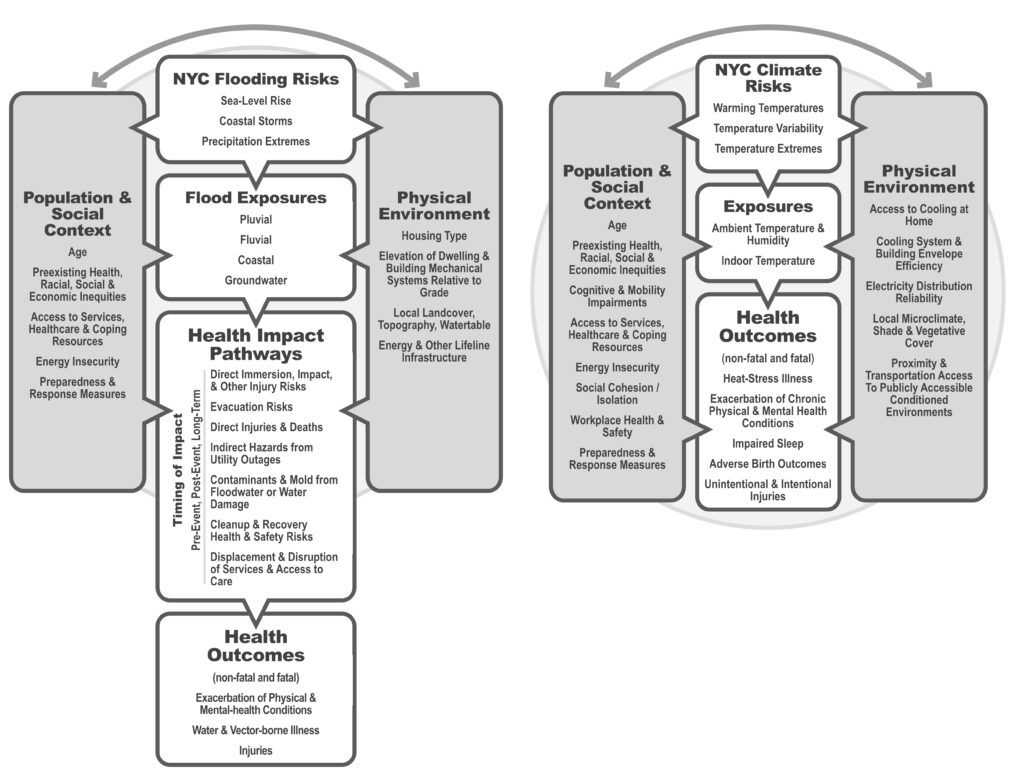Heat and flooding represent the largest present climate-related health risks to New Yorkers.
Without continued adaptation, climate change will exacerbate health risks from hotter summers and the increasing frequency and severity of flooding. Other climate-sensitive exposures harmful to human health include: 1) outdoor and indoor air pollution, including aero-allergens; 2) insect vectors of human illness; 3) waterborne infectious and chemical contaminants.
This chapter considers climate health risks, vulnerabilities, and resilience strategies in New York City’s unique context and provides an update on evidence since the last NPCC health assessment in 2015. It also addresses climate-related health risks and vulnerabilities that have emerged in New York City since 2015.
The chapter discusses health risks associated with flooding and heat in detail and provides an overview of health risks from air quality, insects that carry illnesses, water quality, and other public health emergencies (e.g., pandemics) that may worsen climate-related health risks.

This chapter also addresses compound health risks from simultaneous extreme weather events, infrastructure failures, or other public health emergencies, such as the COVID-19 pandemic and evaluates evidence-informed strategies to reduce risks to health from climate change.
Photo Credit: East River Pedestrian Path: City of New York Mayor’s Office of Climate and Environmental Justice
